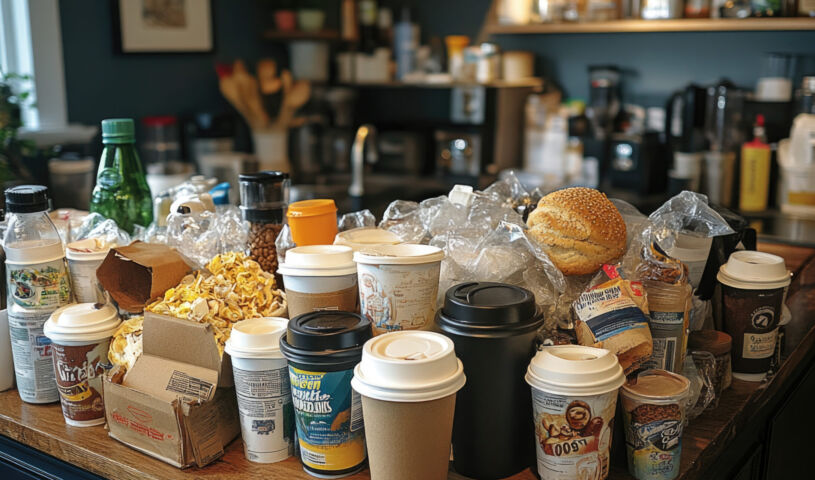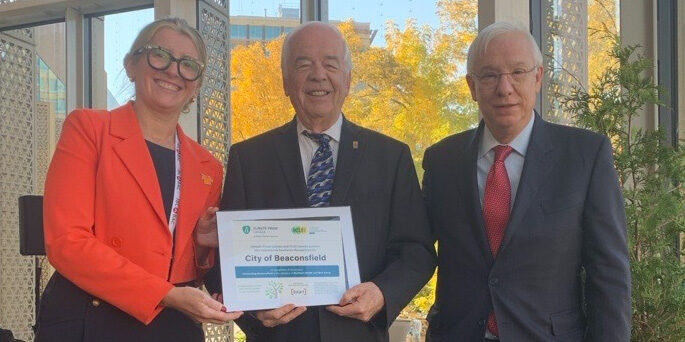Victoria adopts bylaw to reduce single-use items
 The City of Victoria has adopted a new bylaw that it says will significantly reduce the distribution of single-use items. Photo: Adobe Stock
The City of Victoria has adopted a new bylaw that it says will significantly reduce the distribution of single-use items. Photo: Adobe Stock
The City of Victoria has adopted a new bylaw that it says will significantly reduce the distribution of single-use items and make reusable plates, cups, and cutlery commonplace in restaurants. Following approval from the B.C. Minister of Environment and Climate Change Strategy in July, Victoria’s council voted to adopt the Single-Use Items Reduction Bylaw.
“This is a significant step forward in our commitment to fostering a circular economy,” said Mayor Marianne Alto. “The new bylaw will reduce waste, lessen the strain on our regional landfill, and create a cleaner community for residents and visitors.”
The bylaw, which will be phased in between December 2024 and March 2026, will require businesses to distribute foodware accessories – including utensils, stir sticks, condiments, and straws – only when requested and to serve food and beverages in reusable dishware to customers who will be dining on-site.
The bylaw also imposes penalties on any businesses that are found to have broken it. It states that anyone found guilty of an offence under the bylaw could be “subject to a fine of not less than $100 and not more than $50,000 for every instance that an offence occurs or each day that it continues.”
Single-use Plastics
City officials say more than 220,000 single-use items are thrown away in Victoria every day. Packaging materials, including single-use items, add up to 17 per cent of the material currently sent to landfills. Officials anticipate the bylaw will eliminate up to 60 million single-use items from being distributed each year.
The bylaw was developed in collaboration with the local restaurant industry. The city says it has been engaging with the business community and related stakeholders on the reduction of single-use items since 2019.
“The BCRFA would like to thank the team at the City of Victoria for working with industry on the implementation of a single-use items reduction bylaw,” said Ian Tostenson, president of the BC Restaurant and Foodservices Association. “The city team took a careful and cautious approach to developing a bylaw that is fair and addresses the importance of reducing single-use items. We look forward to working with the city to continue to develop a thriving and growing restaurant industry.”
However, while the city says the move will reduce the amount of plastic ending up in the trash, the bylaw does provide businesses with some opt-outs if they meet certain requirements.
The bylaw states that businesses may provide a single-use accessory to a customer if the customer is first asked and responds affirmatively. Additionally, businesses may provide a single-use accessory if the customer requests it or obtains it from a self-serve station.
The city says the bylaw will complement new federal and provincial restrictions on single-use plastics. The push to ban single use plastics has also been unfolding at the federal level.
In June 2022, the federal government published regulations prohibiting the manufacture, import, and sale of some single use plastics. However, in November last year, a federal court found the government’s plan unconstitutional, saying there is “no reasonable apprehension that (listed) plastic manufactured items are harmful.”
The government’s push for a ban was criticized by some as an example of overreach. Among those expressing concern was Alberta Premier Danielle Smith who said it would unduly impact her province’s economic interests.
In January, the federal Court of Appeal granted a stay on that ruling while the government appeals it. The government did so last December and the appeal is ongoing.
Dangers of Plastic Waste
Plastic consumption around the world has quadrupled over the past 30 years. According to a 2022 report from the Organisation for Economic Co-operation and Development, the world is now producing twice as much plastic as two decades ago, and only 9 per cent of it is successfully recycled.
Cities in developed countries like Canada often have rules around when, where, and how to recycle waste. However, almost half of all plastic waste is generated in developed countries. Instead of being recycled, it is often shipped abroad to landfills in the developing world.
A 2023 investigation by the CBC found that Canada is one of the biggest exporters of recyclable paper to India. That paper, however, is often contaminated with plastic waste. Environmental experts have warned that plastic waste is not only damaging the environment, but it also poses a risk to our health.
Experts have warned that micro-plastics pose serious health concerns. Microplastics are defined as pieces of plastics that are less than five millimetres in length. They are usually generated when larger plastic items breakdown.
In 2022, researchers in the Netherlands found microplastics in human blood for the first time. Similarly, scientists in China have discovered them in the hearts of people undergoing cardiac surgery, and researchers in New Mexico recently found them in men’s reproductive systems.
Reducing Plastic Pollution
Back in Victoria, reducing single-use items is one of the priorities under Zero Waste Victoria, the city’s plan to reduce waste by 50 per cent by 2040. The plan was approved back in 2020 and includes goals of designing new waste collection services, reducing litter and circular packaging initiatives.
Victoria isn’t the only Canadian city taking action to reduce plastic waste. Back in 2007, Leaf Rapids, Man. became the first municipality in North America to ban plastic bags. Montreal banned a range of singe-use plastics in 2023. The new rules ban all plastics used in cups, stir sticks and straws, as well as eat-in and take-out utensils.
However, there have been some setbacks and changes as Canadian cities adjust their rules. Vancouver’s city council repealed a 25-cent fee for single-use cups in 2023. In January, Calgary’s council also repealed it’s ask first/by request bylaw that imposed a fee on singe-use bags.
The OECD report also noted that efforts around banning single-use plastics do not necessarily produce the gains governments suggest.
“Bans and taxes on single-use plastics exist in more than 120 countries but are not doing enough to reduce overall pollution,” the report reads. “Most regulations are limited to items like plastic bags, which make up a tiny share of plastic waste, and are more effective at reducing littering than curbing plastics consumption.”
Time for Action
The report says that policies like extended producer responsibility schemes can help bolster action to reduce plastic waste.
Extended producer responsibility is basically the idea that those who produce a product should be responsible for that product’s impact on the environment. Essentially, if a company produces single-use plastics, they should pay for the cost of safely disposing of them.
Several Canadian provinces have implemented some initiatives surrounding extended producer responsibility.
Recycle BC was the first full packaging and paper extended producer responsibility program in North America. Under B.C.’s regulations, producers of designated products can appoint an agency to carry out their duties under an approved extended producer responsibility plan. The province reviews and approves the EPR plans to make sure outcomes and regulatory requirements are met. MW
✯ Municipal World Executive and Essentials Plus Members: You might also be interested in Sean Meyer’s article: Addressing the scourge of plastic pollution.
Ibrahim Daair is staff writer at Municipal World.
Related resource materials:



